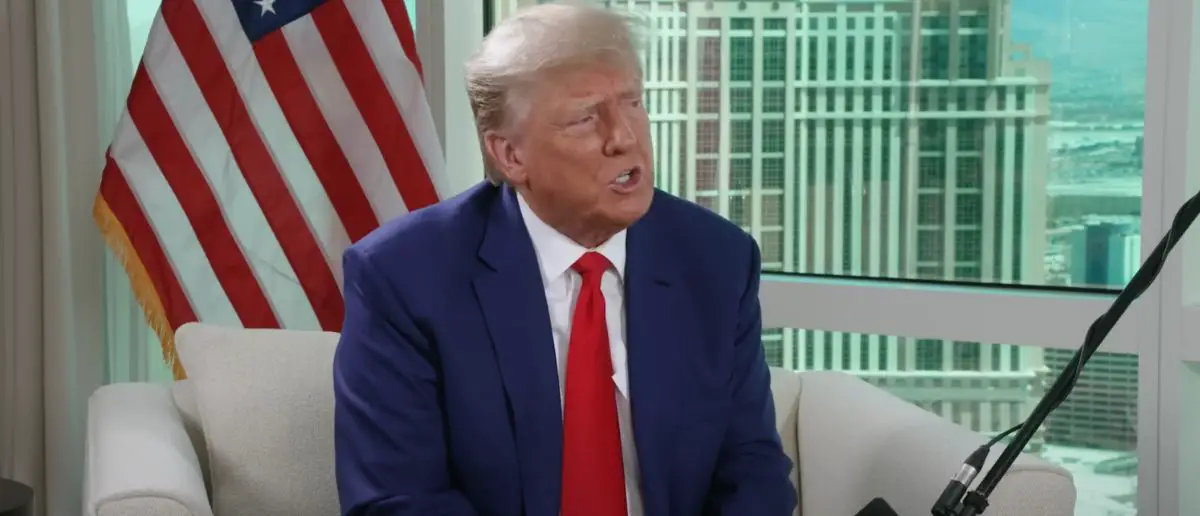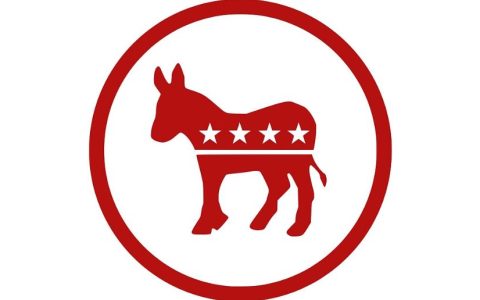
President Trump made a risky bet. But it’s paying off for him and America.
Because Donald Trump has stunned everyone with yet another key win that everyone said was impossible.
Donald Trump has already seen concessions roll in from foreign nations when he threatened to place new tariffs or raise current ones on any imports coming from those foreign nations into the United States. The media claimed that this was a bad move and that it would only hurt Americans, causing inflation to skyrocket and the foreign nations involved would just do nothing about it because it wouldn’t hurt them at all.
That wasn’t the case. Donald Trump has secured concessions from countries like Colombia, Canada, and Mexico, all of which were threatened with tariffs but bent the knee to Donald Trump’s demands in one way or another. In fact, President Trump himself has said he believes America should use its status as an economic powerhouse to negotiate more fair trade deals. Not only that, but Donald Trump was able to come to agreements with both Mexico and Canada to help sure their borders with the United States better than they have in recent years.
The big elephant in the room, though, is actually Taiwan. The computer chip race is a completely different beast, and America’s own Silicon Valley was very skeptical of the idea of Trump threatening Taiwan with tariffs. Taiwan produces many computer chips that are necessary for everything from cars to smartphones in America. Simply put, a disruption in the supply chain between Taiwan and the United States would be bad all around. This was a risky move for Donald Trump to make. Yet, once again, he seems to be pulling it off.
Taiwan Commits to Increased Investment in the U.S. Amid Growing Trade Tensions
Amid escalating trade tensions between the U.S. and several of its trading partners, Taiwan has pledged to boost its investment in the United States. This announcement follows President Donald Trump’s recent decision to impose sweeping tariffs on foreign nations, aimed at reducing the U.S. trade deficit and bolstering American industry.
Taiwan’s President Lai Ching-te made the commitment on Friday, stating that his country would take steps to engage more with the U.S. concerning Trump’s concerns, particularly regarding the semiconductor chip industry. Taiwan has long been a global leader in semiconductor production, and President Lai emphasized that the island nation would also increase its investments in the U.S. as part of this effort. The pledge came shortly after President Trump signed a memorandum on Thursday outlining a plan to impose “reciprocal” and “fair” tariffs on the U.S.’s international trade partners.
Trump’s memorandum highlighted his administration’s determination to protect American interests. In the document, he declared, “Gone are the days of America being taken advantage of: this plan will put the American worker first, improve our competitiveness in every area of industry, reduce our trade deficit, and bolster our economic and national security.”
One of Trump’s chief concerns, as expressed in his remarks, is the global semiconductor chip industry, an area in which Taiwan plays a dominant role. Trump has voiced frustration over Taiwan’s growing influence in the sector, claiming that the country’s rise in semiconductor production has effectively displaced U.S. industry. Taiwan is home to the Taiwan Semiconductor Manufacturing Company (TSMC), the world’s largest and most valuable chipmaker, which produces advanced microchips critical for a wide range of technologies, from smartphones to artificial intelligence systems. In the third quarter of 2024, TSMC held a commanding 64.9% share of the global semiconductor foundry market.
The U.S. has increasingly focused on the semiconductor sector due to its vital importance to national security and technological leadership. As the demand for advanced chips continues to grow, the global supply chain has become more competitive, with countries like Taiwan, South Korea, and China positioning themselves at the forefront. Trump has voiced concerns about the United States’ role in the semiconductor market, especially given Taiwan’s dominance in this key industry.
Trump: Taiwan took our chip business away. We had Intel. Had these great companies that did so well. It was taken from us. And we want that business back. If they don't bring it back we're not going to be very happy. pic.twitter.com/JzGjQeiEzD
— Acyn (@Acyn) February 13, 2025
Trump Notching Trade Win After Trade Win, Proving Doubters Wrong
This latest development follows a series of tariff-related moves by the Trump administration. On February 1, President Trump announced sweeping tariffs on imports from China, Canada, and Mexico, citing concerns over the flow of illegal immigration and illicit drugs, particularly fentanyl, into the U.S. from these countries. In response to the tariffs, Mexico deployed thousands of troops to its border with the U.S. to combat illegal immigration and drug trafficking. Additionally, Canadian Prime Minister Justin Trudeau agreed to take steps to secure the U.S.-Canada border, which led to Trump pausing tariffs on the two countries for a 30-day period.
The tariff measures come amid growing trade tensions, particularly between the U.S. and China. In 2018, President Trump initiated a trade war with China by imposing a blanket 10% tariff on all Chinese goods. In retaliation, Beijing introduced its own set of tariffs on U.S. exports. This ongoing trade conflict has created significant economic ripple effects, not only affecting U.S.-China relations but also impacting global trade patterns.
Taiwan’s response to the U.S. tariff strategy highlights its desire to strengthen economic ties with the United States while addressing concerns about its semiconductor dominance. The island nation’s commitment to increasing investment and cooperation with the U.S. is likely to play a pivotal role in the evolving dynamics of global trade, particularly in the technology sector.
Donald Trump’s tariffs has been praised by industry leaders in the United States, especially those in the manufacturing business who are concerned about the supply chain being too reliant on business being conducted overseas. Surveys indicate that tariffs are much more favorable to Americans than taxes such as the income tax.
While the mainstream media cries about Trump’s tariffs, actual family-owned steel businesses are praising them.
Trump was right again. pic.twitter.com/V52vF3B3FA
— johnny maga (@_johnnymaga) February 14, 2025
Stay tuned to the DC Daily Journal.





